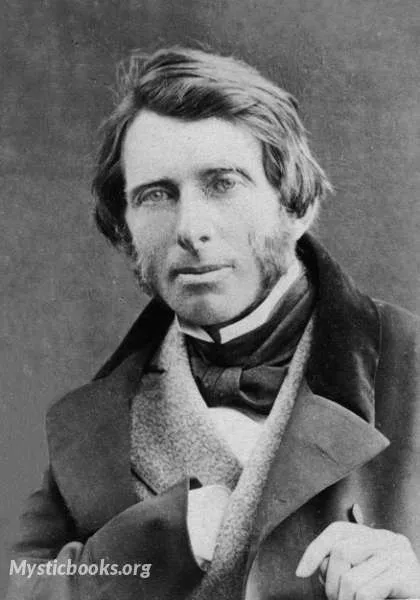
Timeline
Title
Country/Nationality
John Ruskin
John Ruskin was an English writer, philosopher and art critic of the Victorian era. He wrote on subjects as varied as geology, architecture, myth, ornithology, literature, education, botany and political economy.
Ruskin's writing styles and literary forms were equally varied. He wrote essays and treatises, poetry and lectures, travel guides and manuals, letters and even a fairy tale. He also made detailed sketches and paintings of rocks, plants, birds, landscapes, architectural structures and ornamentation. The elaborate style that characterised his earliest writing on art gave way in time to plainer language designed to communicate his ideas more effectively. In all of his writing, he emphasised the connections between nature, art and society.
Ruskin was hugely influential in the latter half of the 19th century and up to the First World War. After a period of relative decline, his reputation has steadily improved since the 1960s with the publication of numerous academic studies of his work. Today, his ideas and concerns are widely recognised as having anticipated interest in environmentalism, sustainability and craft.
Ruskin first came to widespread attention with the first volume of Modern Painters (1843), an extended essay in defence of the work of J. M. W. Turner in which he argued that the principal role of the artist is "truth to nature". From the 1850s, he championed the Pre-Raphaelites, who were influenced by his ideas. His work increasingly focused on social and political issues. Unto This Last (1860, 1862) marked the shift in emphasis. In 1869, Ruskin became the first Slade Professor of Fine Art at the University of Oxford, where he established the Ruskin School of Drawing. In 1871, he began his monthly "letters to the workmen and labourers of Great Britain", published under the title Fors Clavigera (1871–1884). In the course of this complex and deeply personal work, he developed the principles underlying his ideal society. As a result, he founded the Guild of St George, an organisation that endures today.
Books by John Ruskin
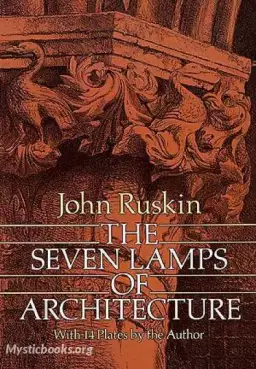
The Seven Lamps of Architecture
The Seven Lamps of Architecture is an extended essay, first published in May 1849 and written by the English art critic and theorist John Ruskin. The 'lamps' of the title are Ruskin's principles of architecture, which he later enlarged upon in the th...
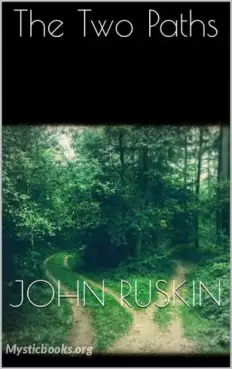
The Two Paths
"The Two Paths" is a collection of five lectures delivered in 1858 and 1859 by John Ruskin on art and architecture. This is how the author himself presents the book: "The following addresses, though spoken at different times, are intentionally connec...
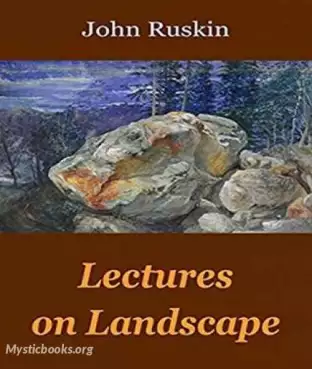
Lectures on Landscape
A series of lectures on landscape painting delivered at Oxford in 1871, by artist, critic, and social commentator, John Ruskin.
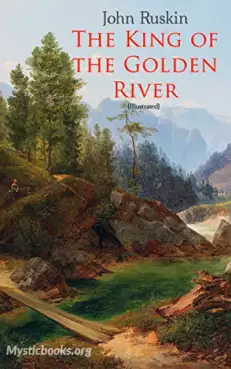
The King of the Golden River
The King of the Golden River or The Black Brothers: A Legend of Stiria is a fantasy story originally written in 1841 by John Ruskin for the twelve-year-old Effie (Euphemia) Gray, whom Ruskin later married. It was published in book form in 1851, and b...
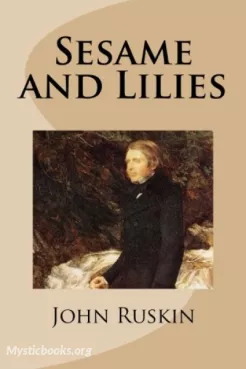
Sesame and Lilies
In a world where men are consumed by wealth and women are confined to domesticity, Victorian social critic John Ruskin boldly challenges the status quo in his groundbreaking work, Sesame and Lilies. In this captivating collection of lectures, Ruskin...
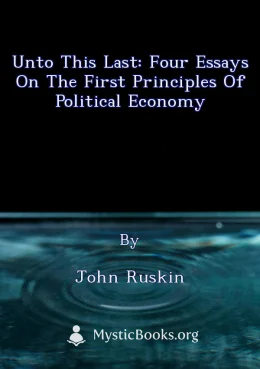
Unto this Last: Four Essays on the First Principles of Political Economy
John Ruskin (1819 – 1900) is best known for his work as an art critic and social critic, but is remembered as an author, poet and artist as well. Unto This Last is an important work of political economic though that influenced Gandhi, among others. (...
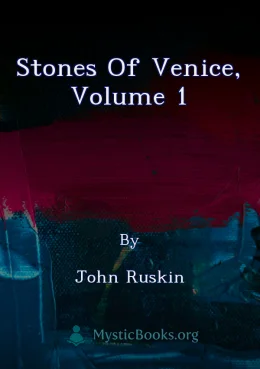
Stones of Venice, Volume 1
The Stones of Venice is a three-volume work by John Ruskin, renowned for its intricate analysis of Venetian architecture and its social and cultural significance. Ruskin delves into the city's architectural history, examining its Byzantine, Gothic,...
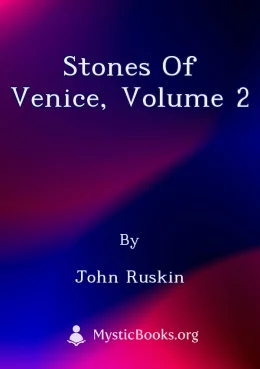
Stones of Venice, Volume 2
John Ruskin's *The Stones of Venice* is a three-volume work exploring the city's architecture and art from its Byzantine origins through the Renaissance. It delves into the technical aspects of building, the social and cultural context of Venetian a...
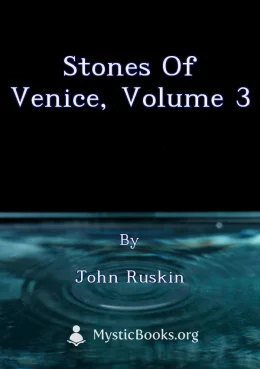
Stones of Venice, Volume 3
The Stones of Venice is a three-volume treatise on Venetian art and architecture by English art historian John Ruskin. First published from 1851 to 1853, the book examines the architecture of Venice in detail, providing a general history of the city...
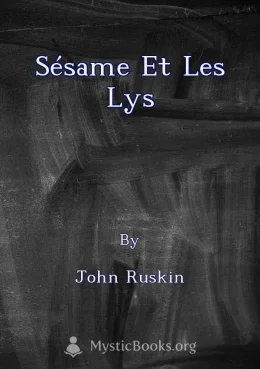
Sésame et les lys
« Sésame et les lys » rassemble deux conférences prononcées par John Ruskin en 1865, et traduites en français par Marcel Proust en 1906. L'œuvre se divise en deux parties distinctes : « Sésame » et « Les lys ». La première explore l'importance de la...